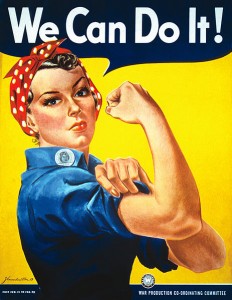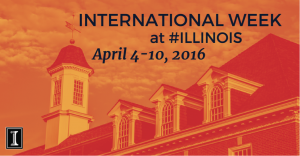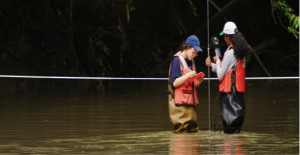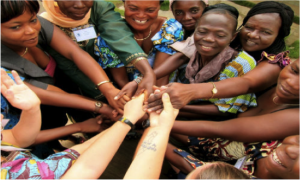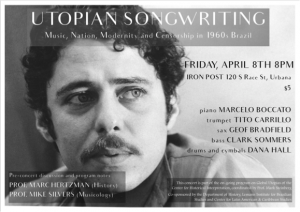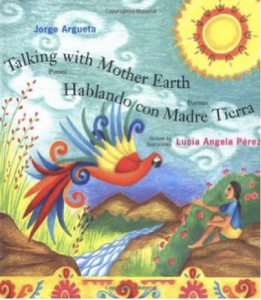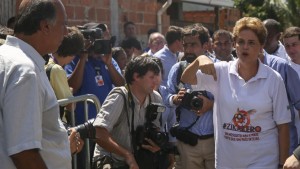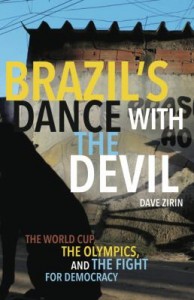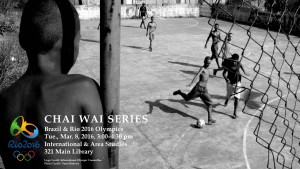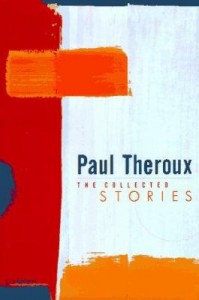Let us know your favorite female directors and/or movies directed by women in the comments below!
We heard you all loud and clear– you loved our March post on female authors from around the world! Just because Women’s History Month is over doesn’t mean we can’t highlight more talented female artists. So this week we bring you a post with films by female directors. And if you need further justification other than “we think it’s an interesting topic”, you may also be interested to know that:
- April is Sexual Assault Awareness Month, and gender-based violence is a theme or undercurrent of many international documentary and feature films by women directors,
- On Tuesday, April 5th from 7:00-9:00 pm the International and Area Studies Library is co-sponsoring a screening of one such film, “India’s Daughter” at the Spurlock Museum,
- Renowned director Pang Eun-jin will be visiting the University of Illinois to screen two of her films, “The Way Back Home”, and “Perfect Number” on April 25, and 26 respectively.
Without further ado, here are a few fantastic films directed by a selection of talented women from around the world:
“India’s Daugther: The Story of Jyoti Singh” directed by Leslee Udwin (2015)
Tags: India, United Kingdom, Jyoti Singh, rape, documentary
“India’s Daughter” is a harrowing documentary recounting the infamous 2012 gang rape case in New Delhi which resulted in the death of a young girl, Jyoti Singh. Both the incident and the subsequent release of the film sparked protests and international conversations about women’s rights and violence against women. The film was banned from screening in India but has nonetheless had a worldwide impact, having been screened in countries all around the globe. One of the aspects of the film that makes it controversial is that the director, Leslee Udwin, is not a South Asian, and the film cannot help but comment on societal conditions and attitudes that contributed to the incident. The film is also difficult to watch because it gives voice to the rapists, their legal counsel, and the families of the rapists including the wife of one of the rapists who laments her suffering and the suffering of her children while her husband is in jail awaiting possible execution. .

Poster designed by Rachel Storm to advertise the April 5th screening of the film “India’s Daughter”.
More like this: “Saving Face” a documentary on acid attacks in Pakistan by Academy Award-winning Pakistani director Sharmeen Obaid Chinoy; “Salma” a documentary by Kim Longinotto telling the story of a Muslim poet and politician in Tamil Nadu, India who was locked away and confined in her home by her family for many years.
“Wadjda” directed by Haifaa Al-Mansour (2014)
Tags: Saudia Arabia, Islam, girls, mothers and daughters, feature films
“Wadjda” is a bittersweet film about a little girl in Saudi Arabia who dreams of owning her own bicycle so she can race with her neighborhood friend. Her mother doesn’t want to buy her the bike because it is not considered a proper toy for girls. Wadjda decides to enter a Koran recitation contest so she can use the prize money to buy the bike herself. Just as Wadjda is running into walls about what is proper for women, we also see her mother struggle with this as her husband searches for a second wife and copes with an overly challenging commute to work as, presumably, she is not allowed to drive herself. The film manages to find hope and humor in conditions where women’s lives are heavily policed from an early age. The film is all the more remarkable in that it is the first feature film shot entirely in Saudi Arabia. In an interview with NPR, director Haifaa Al-Mansour recounts the logistical challenges of trying to shoot the film in a country where she is not supposed to be outside or mingling with men to whom she is not related.
More like this: “Blackboards” by Iranian filmmaker Samira Makhmalbaf, a feature film about the lives of Kurdish refugees after the Iran-Iraq war; “The Square” by Egyptian filmmaker Jehane Noujaim on the Arab Spring.
“Girlhood” by Celine Sciamma (2015)
Tags: France, black diaspora, coming-of-age films, gangs, adolescence, feature films
“Girlhood” is an intense and complicated film to watch, especially as an American [viewer] in a time when racism and civil rights is dominating the news. While this film is set in France, this film shows the ways in which race and economics are inextricably linked, irrespective, it would seem, of one’s country of origin. These considerations become even more complicated when one realizes that the director, Celine Sciamma, is white. On the one hand, “Girlhood” is supposed to be a coming-of-age story, where race is just one small part of a larger context that focuses on the development of a single character. On the other hand, that character is developing within the context of joining a neighborhood gang, fighting, drugs, prostitution, and an abusive family. These issues are thoughtfully considered in an interview between Celine Sciamma and Ghanaian-born film and culture writer Zeba Blay. Taking aside the complicated racial politics of this story, this film is also worth watching for its beautiful cinematography and the masterful acting by newcomer actress Karidja Toure who plays the lead role of Marieme. Like “Wadjda,” the film finds some hope and humor within a bleak situation, but with an ending that leaves the viewer anxious: one is befuddles as to whether the s/he is seeing a happy ending or the set-up for a tragedy waiting to happen.
More like this: Celine Sciamma has two other coming-of-age films, “Tomboy” and “Water Lilies“. To try out a different French female director, you can also check out the work of Agnes Jaoui. The library has several of her films and if you need a break from serious films on difficult social conditions, you can start with her 2000 comedy, “The Taste of Others“.
“Take Care of My Cat” by Jae-eun Jeong (2004)
Tags: South Korea, friendship, young women, cats, feature films
“Take Care of My Cat” is a 2004 feature film about a group of friends who struggle to maintain their friendship and find their way after graduating high school in South Korea. One of the five girls, Hae-joo moves out of their smaller city of Inchon to try to make a new life in the more glamorous capital city, Seoul. Her success and ambition alienate her from other friends, most especially Ji-young. Ji-young is trapped by an impoverished home situation and has dreams that feel unattainable and hopeless. Trapped in between these two is Tae-hee who has both ambition and a difficult home situation. Tae-hee ends up in a place where she must choose between her two friends and in doing so choose a vision for her future. Observing the ways in which particular cultural conditions in South Korea impacted the girls’ choices and behavior was compelling while also considering the ways in which their struggles are universal. For example, Ji-young was unable to get a job she had applied for because she didn’t have an immediate relative to vouch for her, a custom that is largely irrelevant in the United States. Like women all over the world, for these girls becoming independent requires tough choices and unexpected development that can transform their personalities and values.
More like this: If you’re looking for another Korean film but would like to learn about North Korea, check out Yang Yonghi’s documentary “Dear Pyongyang“. For something completely different but still from East Asia, check out Joan Chen’s film “Xiu Xiu: The Sent Down Girl“.
Be sure to comment below letting us know what films you’d recommend that are directed by women or featuring them in lead roles. And be sure to like our Facebook page for more posts like these.


